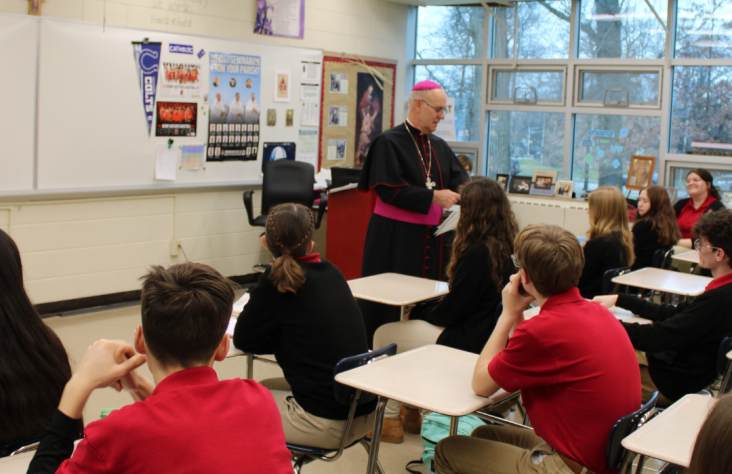March 29, 2018 // National
Young adults ask Church to welcome, listen, involve them
VATICAN CITY (CNS) — Young people want to know they are valued members of the Catholic Church and that their questions and struggles are taken seriously enough that someone will spend time with them discussing issues rather than simply repeating “prefabricated” responses, said delegates to a meeting in Rome.
“We need a church that is welcoming and merciful, which appreciates its roots and patrimony and which loves everyone, even those who are not following the perceived standards,” said the final document of a pre-synod gathering organized by the Vatican March 19-25.
The document reflects the input of 305 young adults attending the meeting in Rome and some 15,000 young people who participated through Facebook groups online.
Released March 24, it was to be presented to Pope Francis at the end of Palm Sunday Mass the next day and was to be used in drafting the working document for the Synod of Bishops on young people, faith and vocational discernment in October, said Cardinal Lorenzo Baldisseri, secretary general of the synod.
With a frantic pace of life, thousands of life choices and proponents of different ideas and ideals battling for their attention, young people said what they want most from the church is “attractive, coherent and authentic models,” who will accompany them in their search for meaning and fulfillment.
But, they warned, “we need rational and critical explanations to complex issues — simplistic answers do not suffice.”
Most of the young people meeting in Rome are very active in the Church and were named delegates to the meeting by their national bishops’ conference or by the Catholic movements to which they belong.
But the young adults in Rome and those in the Facebook groups recognized that like in society at large, they have different opinions on a variety of issues, including “contraception, abortion, homosexuality, cohabitation, marriage and how the priesthood is perceived in different realities in the church.”
Some, the document said, “may want the church to change her teaching” or, at least, they would like “access to a better explanation and to more formation on these questions.”
However, they said, even “young Catholics whose convictions are in conflict with official teaching still desire to be part of the church.”
Of course, the document said, one cannot ignore the fact that “many young Catholics accept these teachings and find in them a source of joy. They desire the church to not only hold fast to them amid unpopularity but to also proclaim them with greater depth of teaching.”
The role of women in society and in the Church was another lively topic of discussion at the meeting, said Laphidil Twumasi, an immigrant from Ghana to Italy who helped present the document to the press March 24.
For many young people today, the document said, the church’s treatment of women is an obstacle to their deciding to remain part of the Catholic community.
“The church can play a vital role in ensuring that these young people are not marginalized but feel accepted,” the document said. “This can happen when we seek to promote the dignity of women, both in the church and in wider society.”
“One key question arises from these reflections: What are the places where women can flourish within the church and society?” it said. The young people suggested, “The church can approach these problems with real discussion and open-mindedness to different ideas and experiences.”
In their specific discussion of “vocation,” the young adults insisted that the approach must be a holistic one of God’s call to each individual to follow him, rather than being read as a discussion of a call to priesthood or religious life.
And while the document made no mention of the ordination of women and did not clarify further, the delegates said, “We recognize in particular the unique challenges faced by young women as they discern their vocation and place in the church.”
“Just as Mary’s ‘yes’ to God’s call is fundamental to the Christian experience, young women today need space to give their own ‘yes’ to their vocation,” it said. “We encourage the church to deepen its understanding of the role of women and to empower young women, both lay and consecrated, in the spirit of the church’s love for Mary, the mother of Jesus.”
The young adults said in the document that it does little good when Church leaders dance around topics or show they are embarrassed by them. “We, the young church, ask that our leaders speak in practical terms about controversial subjects such as homosexuality and gender issues, about which young people are already freely discussing without taboo.”
But the key questions for the young adults was what do young Catholics need from their elders in the church and why are so many young people in so many countries leaving the Church in droves?
“Young people who are disconnected from or who leave the church do so after experiencing indifference, judgment and rejection,” the delegates wrote.
In the document, the young adults asked the Church to be more credible, more honest, more transparent and to continue to admit its failures and express sorrow for the way it has dealt with clerical sexual abuse and the misuse of wealth.
The humility of the Church, it said, “will undoubtedly raise its credibility among the world’s young people. If the church acts in this way, then it will differentiate itself from other institutions and authorities which young people, for the most part, already mistrust.”
The best news. Delivered to your inbox.
Subscribe to our mailing list today.






